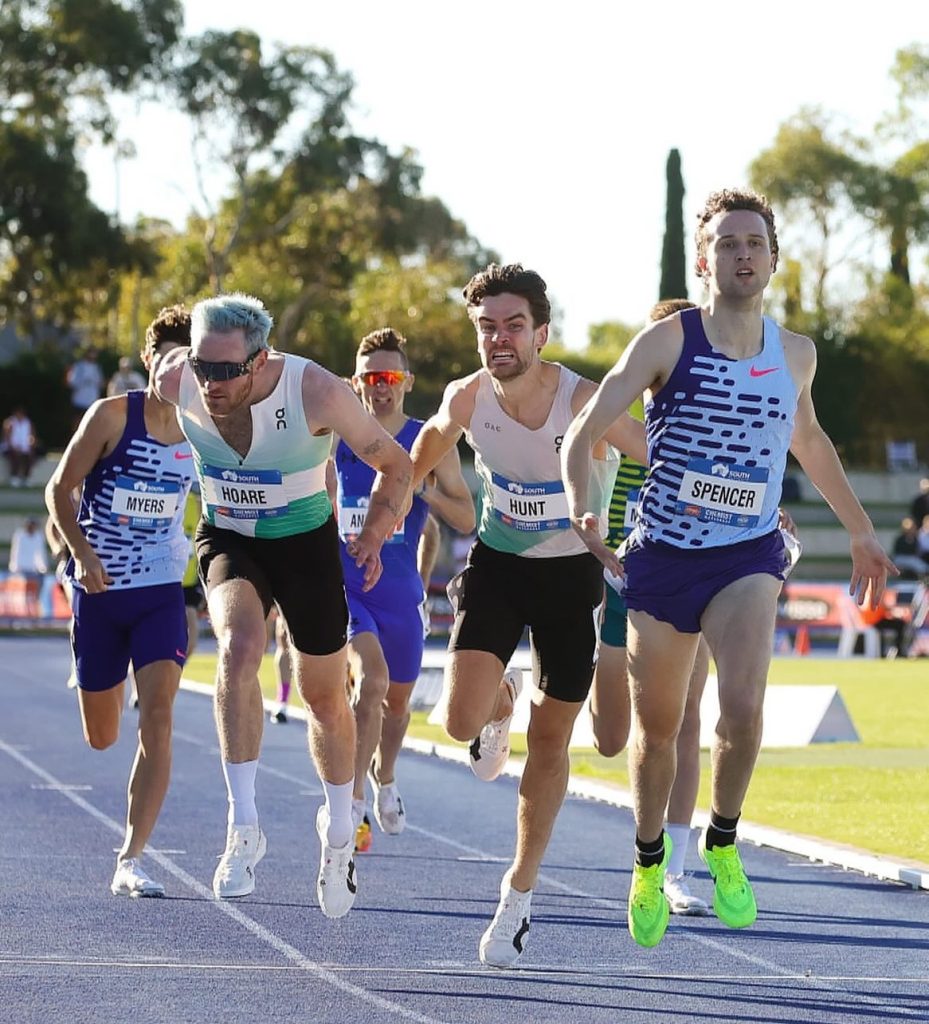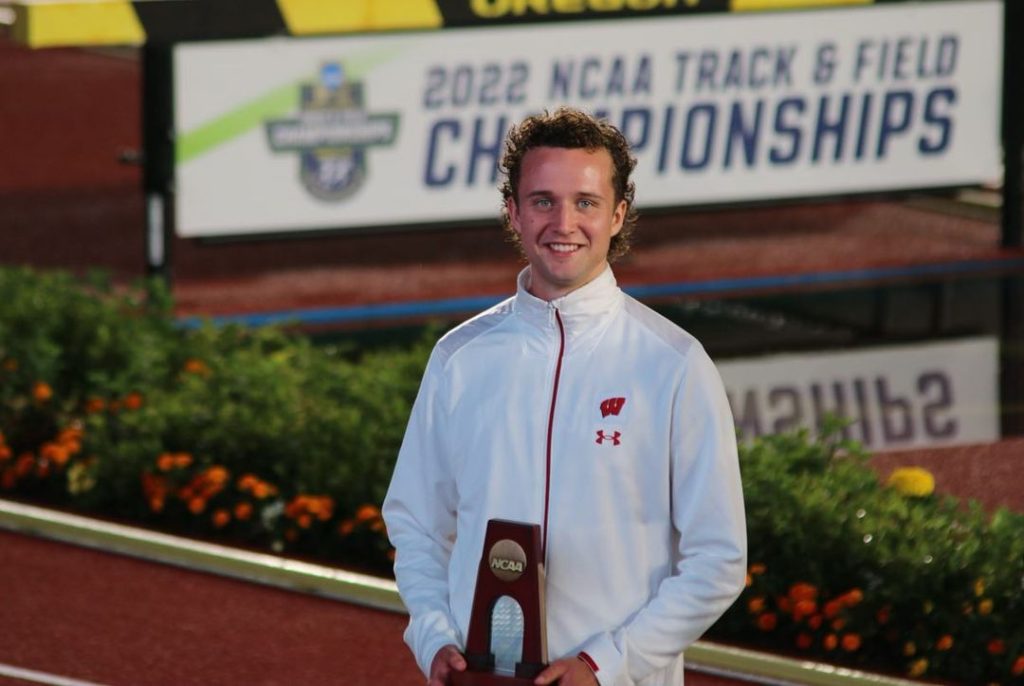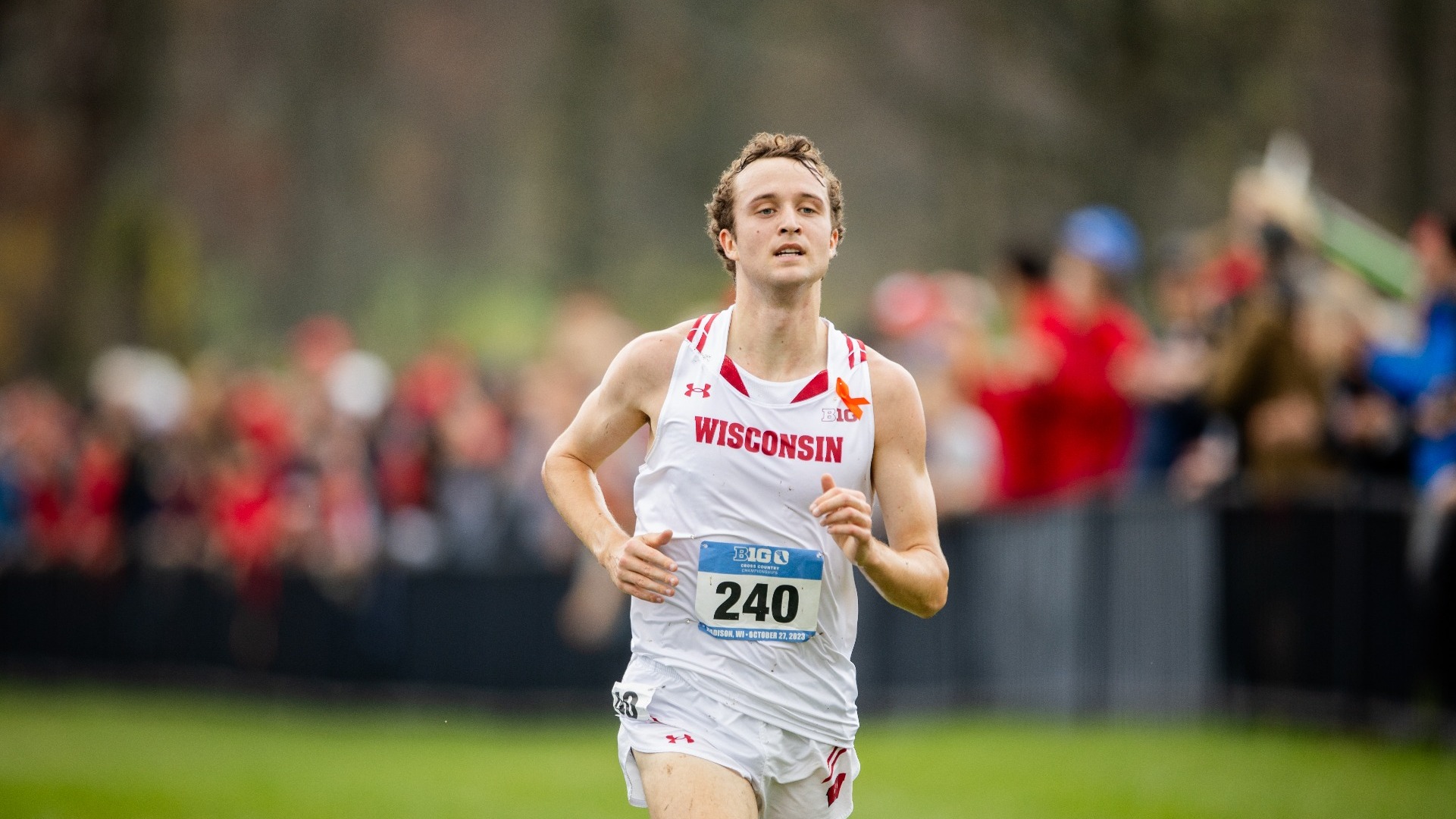In our RT Snap Q&A series, we’ve had the privilege of interviewing some of the world’s best runners, delving into their extraordinary journeys, celebrating their achievements, and exploring the unwavering dedication that defines their careers.
Adam Spencer
- Born on October 4, 2001.
- Middle and long-distance runner. His favorite race is- the London Diamond League.
- Fourth fastest Australian of all time with a personal best of 3:31.81 in the 1500 meters at the 2023 London Diamond League.
- His 800-meter outdoor record is 1:46.84, set in Bloomington in 2023.
- He clocked 1:50.09 in the indoor 800-meter event in Chicago in 2023.
- He ran the indoor 1500 meters in 3:35.59 in Toruń in 2023.
- His mile record stands at 3:52.70, set in New York in 2024.
- In the indoor mile, he recorded a time of 3:55.61 in Chicago in 2023.
- His 3000-meter best is 8:16.13, achieved in Melbourne in 2020.
 RT: Adam, you’ve had a stellar career so far, achieving significant milestones in both Australian and international competitions. Can you share a pivotal moment or experience that has shaped your journey as a middle and long-distance runner?
RT: Adam, you’ve had a stellar career so far, achieving significant milestones in both Australian and international competitions. Can you share a pivotal moment or experience that has shaped your journey as a middle and long-distance runner?
Adam: I would argue that there’s been a few pivotal moments in my career. One of the biggest pivotal points was running 3:31 at the London Diamond League. This race was a near 5-second personal best and I also qualified for the World Athletic Champs in Budapest and the Olympics in Paris. It was an extremely big breakthrough for me, and it gave me plenty of confidence that I was capable of competing with some of the best 1500m runners in the world. Without that run, I wouldn’t have qualified for Worlds which was really important to me because I wanted experience on the world stage before the Olympics so I would know what was coming and I could learn from my mistakes.
RT: Transitioning from junior competitions to collegiate and now international stages, how has your mindset and preparation evolved over the years?
Adam: I have really evolved in the way I handle my pre-race nerves. I used to be extremely nervous before the races. I remember before the 800m on APS Day during year 12, I threw up before my race because I was so nervous. I still get nervous but I can handle them much better. I think this comes from racing frequently throughout the year. Being part of the NCAA system, you’re racing every 2nd It’s not the be all end all for each race so it really takes the pressure off. I’ve also learned that running isn’t as deep as we think it is 😊
I have also improved in my preparation before the races. During my first year at Wisconsin, I did a lowkey 800m time trial. Mick (my coach) had only told me that I was doing it the day before, so I didn’t put really have time to think about the time trial. I came straight from class which ran late so I was only able to get in a short warmup. I ended up running 1:52 which was about 3 seconds off my PB at the time and it felt really hard. Even though it was hard, I felt like I recovered really quickly. I did some 200s after in 27 which felt incredibly smooth. Mick and I pieced together that I needed a warmup that involved some hard efforts to get my body ready to race. So now for my warmup, I do 90-120second threshold. And sometimes another threshold for 60s if I’m feeling good. Then I’ll try to get in some really hard strides ideally from 150-200m to feel really ready to go at race pace. It’s similar to training, the first rep never feels the best but once we work into it there’s a point where we start to feel smoother. This is something that has helped me immensely over the past couple of years.
View this post on Instagram
RT: Outside of competitions, what aspects of your training regimen do you find most crucial for maintaining peak performance and avoiding injuries?
Adam: I strongly believe in consistency. I think it is important to be consistent all year round. I would argue that I have been very consistent, not just over the past few months but over the past few years. If you train at a level that you can maintain over a few years, you are extremely likely to improve. Some athletes (including myself) can get greedy with training and do too much which may seem beneficial in the short run, but if high amounts of training lead to injuries and other interruptions it can decrease our consistency which isn’t optimal for peak performance. I would say that a lot of my sessions aren’t actually extremely difficult, but I am able to do them week in, week out which allows me to stack really good training over a long period of time. I’d rather train at 80% all year round than 100% for a few months then be injured.
RT: Reflecting on your journey so far, what have been some of the biggest challenges you’ve faced, and how have you overcome them to continue progressing in your athletic career?
Adam: One of my biggest challenges is recovering from big races. For me, races can take quite a toll on my body, and I have sometimes struggled to bounce back for quick turnarounds. In Budapest, I had a great run in the heat, but I couldn’t replicate that performance in the semi-final which was less than 24 hours later. This was one of the biggest takeaways for me from Budapest and I have been working on it all year. Going through the rounds at NCAAs definitely helps but it also about getting stronger and getting used to racing at that level. Even after big races such as the NCAA Nationals or Australian Nationals, it can take me a while to recover from the mental aspect. There’s so much mental energy and focus that goes into those races and coming out of it, I’ll feel pretty drained for a few days. That is something that I have tried to work on and manage throughout this year. Obviously, the Olympics (pending selection) and other future global races will have many high emotions but learning to control them will be really important in preserving my energy throughout the rounds so I can run at my best in the final and not just the heat.

RT: Can you please outline your typical training week?
- Monday easy 35 min run AM (majority of my easy runs are about 4:10-4:30/km)50-60 min PM.
I will usually head to the track and do 6×150 or 6×200 depending on the time of year. During the pointy end of the track season, I will do 150s. I’ll start at 22/21 seconds and work down to about 18s by the 5th and the 6th one is a “cool-down” rep in about 21 seconds. It’s interesting to see how much easier the last 21s 150 feels compared to the first rep.
- Tuesday 35 min in the morning.
Session in the afternoon. This can vary from 1km reps on a hilly loop, fartleks on our cross-country course, or reps varying from 800-3200 on the track during the cross-country season. During track season this may be 400m-800m hills, threshold reps or track sessions. Sometimes we will do a double threshold or tempo work in the morning with faster speed stuff in the afternoon but that is still quite rare and is only something we have experimented with in the past year. I’ll only do it during training blocks with no racing.
- Wednesday MLR 16-18k easy.
- Thursday 35 min double (if feeling good coming off Tuesday)
40-50 min + 150s (same as Monday) - Friday Same as Tuesday. Another workout day with a double if I’m feeling good.
- Saturday OFF. I don’t run on Saturdays during a normal training week. Usually I’ll sleep in, watch a movie (or 2). Hangout with my housemates or catchup on schoolwork. During the summer we’ll go to the terrace which is a patio area on the lake in Madison and we’ll play cards and eat pizza. I try to not think about running on this day and live the life of an ordinary person 😊
- Sunday long run. During cross country season this will get up to 25km but during the track season this will be around 18-22km. Sometimes we will do a tempo in the middle of the long run if we feel like we need extra work but that will be pretty rare. We will do 8-10km at around 3:15min/km during the long run. It may sound hard but I don’t mind it because I think it makes the long run go by faster. It’s a nice way to break the long run in parts.
Total mileage will be 120-130km. During cross country season it’ll be more towards 130k but during track, it’ll be closer to 120k if I don’t have a race. During a race week I try not to think about my mileage, and it can get down to 60k, especially during Championship races with heats and finals. Tuesdays and Fridays aren’t strict workout days but most weeks we’ll do our sessions then. Sometimes if we are tired coming off a race or a big workout, we’ll swap the days around to workout later, so we are fully recovered.
I am on Strava and post all my workouts and sessions there!





